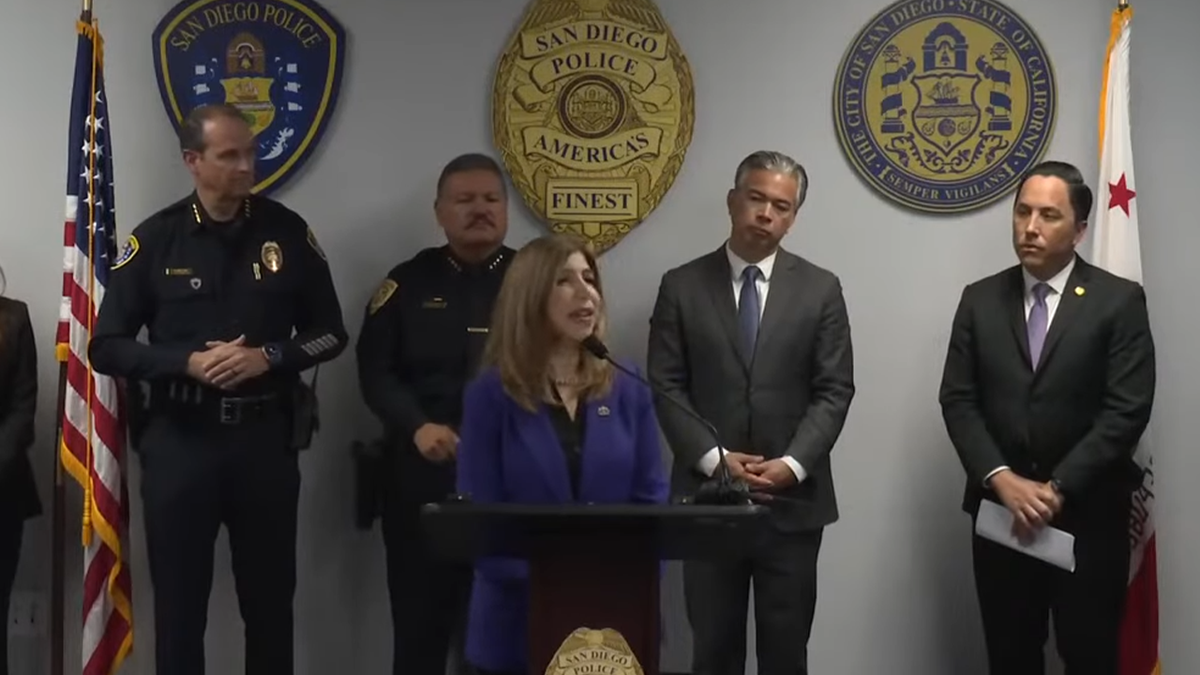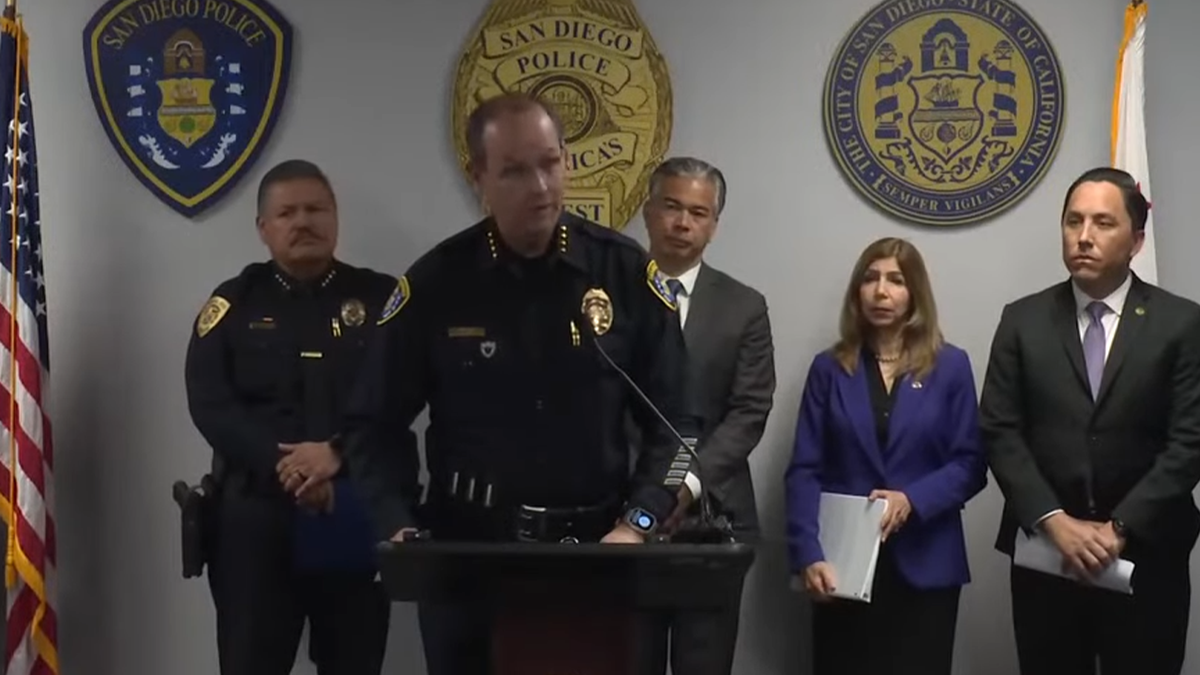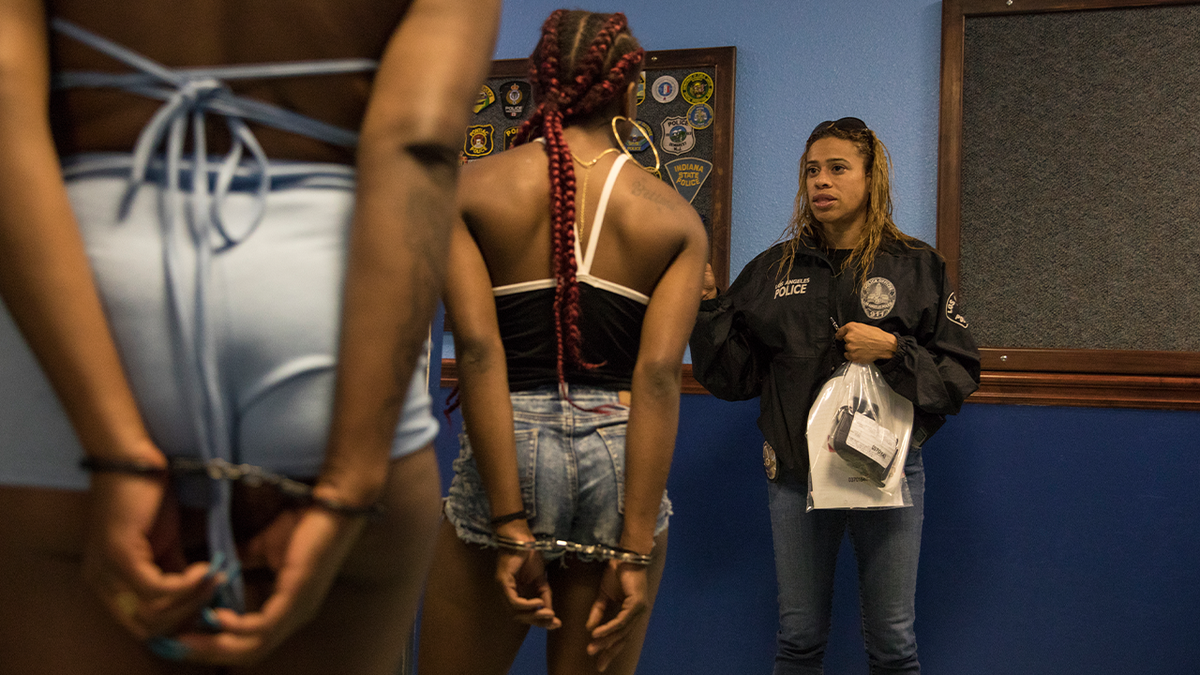San Francisco neighborhood overrun with sex workers, ‘terrible policy’: Michael Shellenberger
Founder of Environmental Progress and author Michael Shellenberger says street prostitution increased after California Gov. Gavin Newsom signed legislation that decriminalizes loitering for prostitution purposes.
California's rampant prostitution problem had johns lined up for sex like they were at a "fast-food drive-through," police said as they announced a series of sting operations that netted dozens of arrests.
Authorities in San Diego County arrested 48 people in a trafficking and sexual exploitation investigation across San Diego and National City from Jan. 9 to Feb. 10.
"Young women being openly trafficked in broad daylight, with individuals paying for sex lined up like they were going through a fast-food drive-through," San Diego County District Attorney Summer Stephan said at a news conference Tuesday. "It’s an unacceptable situation."
The San Diego Human Trafficking Task Force led "Operation Better Pathways," assisted by law enforcement officials at the local, state and federal level.

Summer Stephan, the district attorney for the County of San Diego, speaks at a press conference. (California Department of Justice)
Officials carried out a total of 17 stings in the county, focusing on areas such as Dalbergia Street in San Diego, Naval Base San Diego and Roosevelt Avenue in National City, the Los Angeles Times reported.
"What I saw was what drove me to be a prosecutor in the first place," Stephan added. "What I saw was that look in the eyes of human beings like they are products, products with hardly any clothing on. Lines of cars like this is some kind of… buying a hamburger at a 24/7 place. But these are human beings."
A total of 39 people were arrested for misdemeanors related to allegedly buying sex, while nine people were arrested on suspicion of human trafficking of a minor and assault with a deadly weapon.
Officials also identified 41 suspected victims of human trafficking or sex exploitation — eight of whom were children, including one girl who was only 13 years old.
California Attorney General Rob Bonta also attended the press conference, lauding officials for their work and highlighting that "we're fighting to hold perpetrators accountable, and help survivors get a fresh start."
The young girls and women suspected of being victims of human trafficking were offered support services, according to local leaders.

San Diego Police Department Chief Dave Nisleit speaks at a press conference. (California Department of Justice)
"The criminals who were taken down as part of this operation abused and exploited women for their own enrichment," San Diego Mayor Todd Gloria said at the press conference. "We will continue to disrupt these criminal operations that seek to do our people in our communities harm."
The officials in San Diego sounding the alarm on human trafficking and prostitution concerns are far from alone. Local leaders and residents in Los Angeles, Oakland and San Francisco have also spoken out that brazen prostitution and human trafficking in California are spiraling in the wake of a new law that took effect last month.

A police officer speaks to two women recently arrested for soliciting undercover cops for the purpose of prostitution in the southern area of Los Angeles. (Robert Nickelsberg/Getty Images)
"I get the call saying, 'Mr. Gallo, I can't get into my home because the pimp is blocking my driveway,'" Oakland City Councilman Noel Gallo said earlier this month of the weekly calls he receives from residents in East Oakland. "It's constant."
Parents and residents in the area say prostitutes and pimps have converged outside a Catholic grade school, even standing right outside the school’s gates.

Entrance to St. Anthony's Catholic grade school in Oakland, California. (Google Maps )
Republicans and police in the state have pinned blame on a law that went into effect on Jan. 1, which repealed a previous law that banned loitering with the intent to engage in prostitution. Police argue that the new law ties their hands from carrying out the rule of law.
The original bill was introduced by Democratic state Sen. Scott Wiener, who argued it will protect transgender women whom he said are disproportionately targeted by police.
The Coalition to Abolish Slavery & Trafficking (CAST), which is one of the largest and oldest direct service providers for sex and labor trafficking survivors in the U.S., threw its support behind the bill and told Fox News Digital earlier this month that it endorsed repealing the former policy "because we know that reducing the criminalization of survivors will help prevent human trafficking."
CLICK HERE TO GET THE FOX NEWS APP
"Traffickers rely on our systems to criminalize victims so that they are unable to access safety due to their records and are vulnerable to continued exploitation," said Leigh LaChapelle, CAST's associate director of survivor advocacy.






















